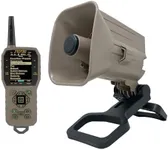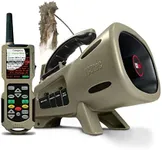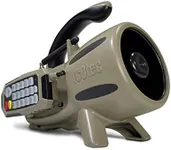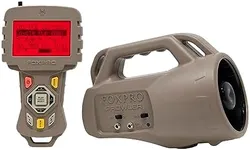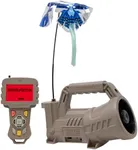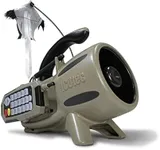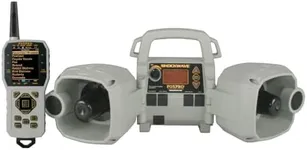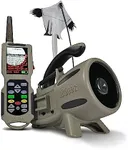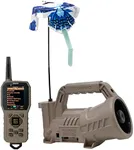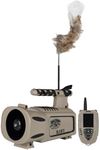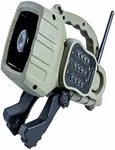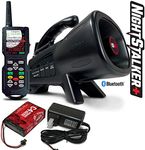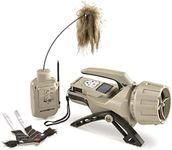Buying Guide for the Best Predator Call
Choosing the right predator call can significantly enhance your hunting experience by attracting the specific predators you are targeting. The key to selecting the best predator call is understanding the different features and how they align with your hunting needs. Here are some important specifications to consider when picking a predator call.Type of CallPredator calls come in two main types: electronic and manual. Electronic calls use pre-recorded sounds and are often more versatile, allowing you to switch between different calls easily. Manual calls, on the other hand, require you to blow into them to produce sounds and can be more challenging to master but offer a more authentic experience. If you are a beginner or want convenience, an electronic call might be the best choice. If you prefer a more traditional approach and enjoy the skill involved, a manual call could be more suitable.
Sound QualitySound quality is crucial because it determines how realistic the call will be to the predator. High-quality sounds are more likely to attract predators as they mimic natural prey sounds more accurately. When evaluating sound quality, listen to sample calls if possible. Look for calls that offer clear, crisp, and natural-sounding audio. If you are hunting in areas with experienced predators, higher sound quality can make a significant difference.
Volume ControlVolume control allows you to adjust the loudness of the call, which is important for different hunting scenarios. In open areas, you might need a louder call to reach distant predators, while in dense forests, a quieter call might be more effective. Look for predator calls with adjustable volume settings to give you flexibility in various environments. If you hunt in diverse terrains, having a call with a wide range of volume control is beneficial.
RangeThe range of a predator call refers to how far the sound can travel. A longer range is useful in open fields or large hunting areas where you need the call to reach predators that are far away. Shorter ranges are sufficient for smaller, more confined hunting grounds. Consider the typical size of your hunting area when choosing the range. If you often hunt in vast open spaces, opt for a call with a longer range. For smaller, wooded areas, a shorter range will suffice.
DurabilityDurability is important because hunting often involves harsh outdoor conditions. A durable predator call will withstand rough handling, extreme temperatures, and moisture. Look for calls made from high-quality materials that are known for their resilience. If you frequently hunt in challenging environments, prioritize durability to ensure your call lasts longer and performs reliably.
Ease of UseEase of use is a key factor, especially for beginners. Some predator calls come with complex features and settings that can be overwhelming. Choose a call that is user-friendly and easy to operate, with straightforward controls and clear instructions. If you are new to predator hunting, a simpler call will help you get started without frustration. Experienced hunters might prefer more advanced features, but ease of use should still be considered.
Battery LifeFor electronic predator calls, battery life is a critical consideration. Longer battery life means you can use the call for extended periods without needing to replace or recharge the batteries. This is particularly important for long hunting trips. Check the estimated battery life provided by the manufacturer and consider calls that offer efficient power usage. If you plan on long hunts, prioritize calls with longer battery life to avoid interruptions.
